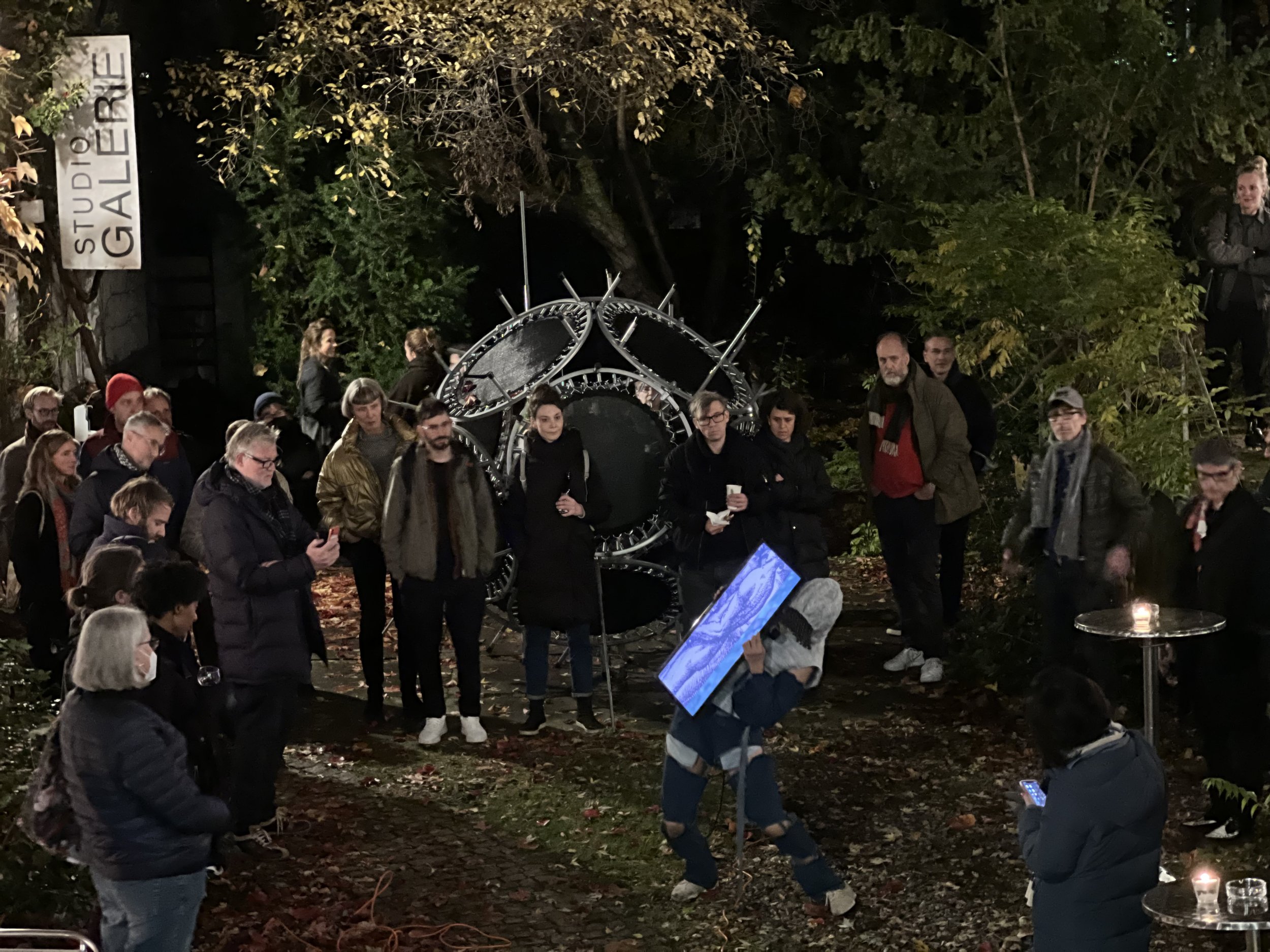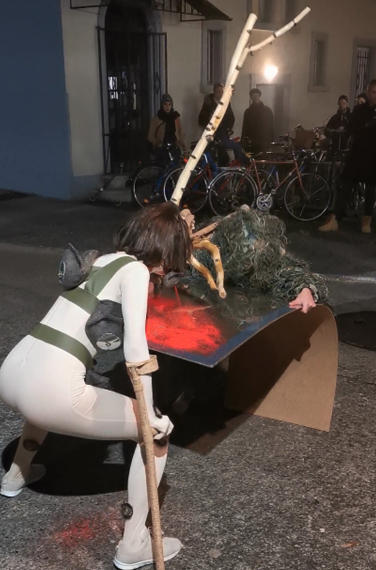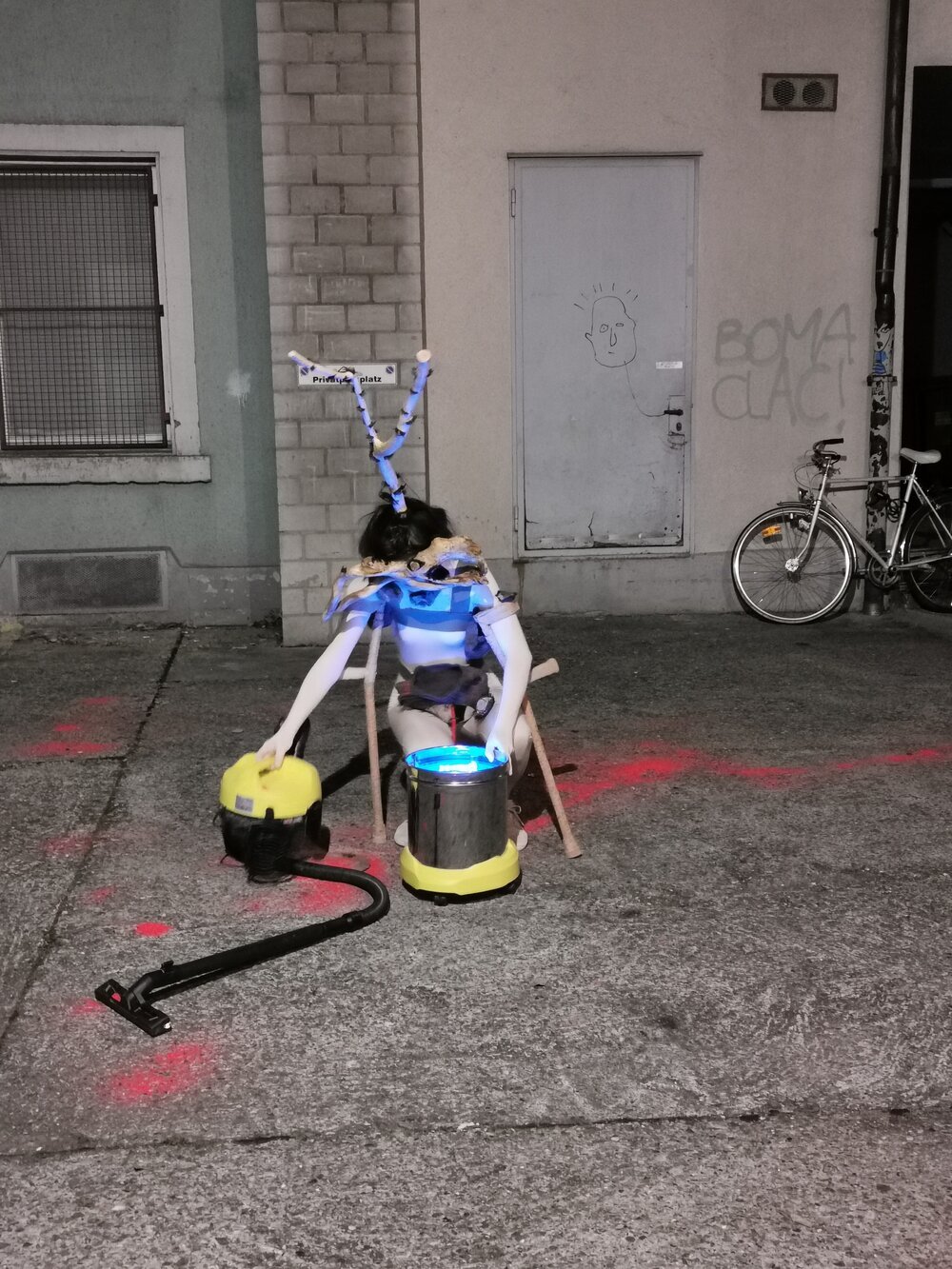Milda Lembertaite
“My practices combine a nuanced critical investigation of our relationships with nature, technology and history with a freewheeling spirit of material exploration and sly, often surreal playfulness.”
Interview by Brooke Hailey Hoffert
Could you tell us a bit about yourself and your background? Where did you study?
I’m a Lithuanian- raised artist working between sculpture and digital- video, eco-activism and Dadaist performance. I’m based in London since doing my BA in Performance Design and Practice from Central Saint Martins. I've been thinking what does home mean? Does the place where we are, actually make some difference to who we are? I received my MA in Fine Art from Chelsea College of Art where I studied as part of the open-ended Sisters From Another Mister group. In 2016 I was chosen by Chalton Project (now UKMAS) and AMEXID for a 3-month art residency in Mexico, since that time I have confirmed my strong interest in nature and technology. My 2018 artist residency at LABVERDE: Art Immersion Program in the Amazon Rainforest, enabled me to focus on questions of power, privilege and agency in relation to the climate crisis in a way that is highly self-reflexive, using narrative tension as a means to call for political change.
What interests you about the exploration of the boundary between human and non-human experiences?
By weaving the tapestry of objects geological and technological, and agencies both animal and physical, we might be able to look into the gap between human and non-human shared fate and remember our purpose. I consider the land around us as an animate, living matrix. For oral peoples, it is the animate earth that speaks; human speech is just one part of that much wider conversation.
I look at objects of technology as polymorphic, shapeshifting entities; with the black surface of the flat screen being at once a mirror; a plane upon which to inscribe one's innermost desires, a surface to caress and be caressed by; or the contemporary doppelgänger for a piece of ancient black reflective Obsidian stone. The wood in my sculptures is taken from broken trees bred for urban London, for their ability to absorb car pollution, heal, cleanse toxic by-products of the body of technology.
Can you elaborate on the notion of “playful contradiction” in your practice?
My practices combine a nuanced critical investigation of our relationships with nature, technology and history with a freewheeling spirit of material exploration and sly, often surreal playfulness. With an emotional register ranging from the haunting and prophetic to the surreal and slapstick. Binding the diverse conceptual and emotional elements together is a practical emphasis upon materiality, chance, and co-creation- (in 2015) a falling tree branch, narrowly missing my head while cycling, will become a new conversational partner with whom I collaborate to give rise to sculptural work. Like rooting bodies, the found branches standing on their many awkward limbs or aided in doing so by the addition of weaved metal armatures and prosthetic additions, that serve as protective outfits in Frankenstein-esk enmeshment of the organic with the inorganic. With bark peeled and their many knots exposed as eyes, the branch works that result from these chance encounters evoke the relationships between touching and seeing and of being touched and being seen.
Taking on the fluid visual display of a TV screen as an extension of the body’s surface, the choreographed movements in my performances seamlessly blend the physical with the virtual- the ‘immateriality’ of the digital image translated into a sweat and muscular exertion where I drag, caress, lift and dance with the large, heavy screen.
Arapaima, 2018, photographed by Ben Westoby
Spring, 2021
The Echo System, Thames-Side Studios Gallery, London, 2021, photographed by Ben Westoby
Leela Game, 2021
Leela Game, 2021 (Detail)
Amanda Verde, Açaí-Live Longer Stronger Better (performance), Haus am Lützowplatz (HaL), Berlin, 2021, photo by Carsten Eisfeld
On Becoming Fully Grown (performance), Last Tango, Zurich, 2020
On Becoming Fully Grown (performance), Last Tango, Zurich, 2020
What do you want people to take away from viewing your art?
In the same way that the TV screen has a dual quality: giving the image as well as receiving images, I invite viewers to reassess their relationship with the planet. How conscious are you of the planet’s ability to absorb and transform your poisons- your unhappiness, your emotional difficulties, the blocks on your path, your negativity? Can you begin to utilise this beautiful facility which has been given to assist us? This does not mean spoiling the planet, of course. To give it our plastics is to
abuse it, though in time it will absorb those too, but to give it our pain is legitimate. You give it as a gift for the negative can become something positive. I want the public to give something back to the planet. This can be a change in an attitude or take something and give to the Earth as an offering of gratitude.
Tell us a bit about how you spend your day / studio routine? What is your studio like?
I don’t have a studio routine, and yet on arrival to the studio, I smudge the space to invite positive energy. In my studio, I mostly work on sculptures that require a lot of space. At the moment I have been developing some new paintings on wood too, though it looks a lot like carvings for the time being. There are always a few sculptures that are in progress because I learned to listen to wood and notice its ‘breath’, change of shape through the process of drying.
What artwork have you seen recently that has resonated with you?
By chance, a recent conversation with Billy Childish was so refreshing, timeless and real. You hear music when you look at the space of his paintings. His works listen and reflect his spiritual journey.
Is there anything new and exciting in the pipeline you would like to tell us about?
I met quantum physics scientist Dr Rick Mukherjee at some conscious festivals (alcohol and drug- free) last summer. We recently started an exchange and planning a collaboration.
All images are courtesy of the artist
Date of publication: 18/02/22








